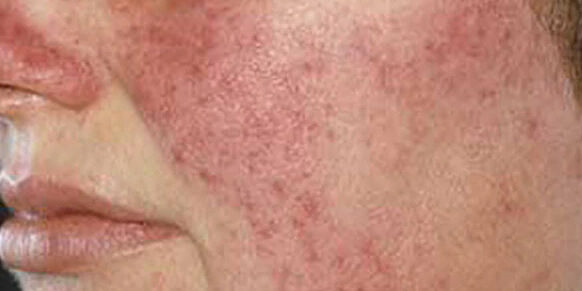April is Rosacea Awareness Month – Learn More About This Condition
April is Rosacea Awareness month, here we will discuss how it affects people, and what can be done to manage it. Rosacea is a chronic skin condition that affects millions of people worldwide. It is a common skin disorder that causes redness, visible blood vessels, and pimples on the face. Those with rosacea often experience facial flushing, and the condition can have a significant impact on their quality of life.
What is Rosacea?
Rosacea is a chronic inflammatory skin condition that primarily affects the face. It typically begins with facial redness, which can appear as blushing or flushing, and eventually progresses to visible blood vessels, pimples, and sometimes even eye problems. Rosacea is a long-term condition that can be managed with proper treatment but not cured.
Rosacea Symptoms and Signs
The symptoms of rosacea can vary from person to person, and can change over time. The most common symptoms of rosacea include:
- Facial redness
- Visible blood vessels
- Pimples or bumps on the face
- Flushing or blushing
- Eye irritation or dryness
- Thickened skin on the nose
Rosacea symptoms can also be triggered by certain factors, including spicy foods, alcohol, sun exposure, and stress. If you notice any of these symptoms, contact us to diagnosis and start a treatment plan.
Rosacea Causes
The exact cause of rosacea is unknown, but there are many factors that can contribute to its development. Some of the most common causes of rosacea include:
- Genetics
- Environmental factors
- Abnormalities in the immune system
- Demodex mites
- Blood vessel abnormalities
While there is no known cure for rosacea, there are many treatments available to help manage the condition.
Medical Treatments for Rosacea
There are several medical treatments available for rosacea, including topical and oral medications. Topical treatments, such as metronidazole and azelaic acid, are often used to reduce redness and inflammation. Oral antibiotics, such as doxycycline, can also be used to treat rosacea, especially if pimples or bumps are present.
Coping with Rosacea – Lifestyle Changes and Self-Care Tips
In addition to medical treatments, there are several lifestyle changes and self-care tips that can help manage rosacea symptoms. For example, avoiding triggers such as spicy foods and alcohol can help reduce redness and flushing. Using gentle skincare products, such as fragrance-free cleansers and moisturizers, can also help prevent irritation. Additionally, wearing sunscreen and protecting the face from the sun can help prevent rosacea flare-ups, this is especially helpful in the summer in Alaska.
Preventing Rosacea Flare-Ups
While it is not possible to prevent rosacea, some steps can be taken to reduce the frequency and severity of flare-ups:
- Avoiding triggers
- Keeping a diary to track triggers and symptoms
- Using gentle skincare products
- Protecting the face from the sun
- Managing stress levels
Rosacea is a chronic skin condition that affects many people worldwide. While there is no known cure, there are many treatments available to help manage the symptoms.
Schedule an Appointment with our Dermatologists to diagnose and work on a treatment plan for you Rosacea




